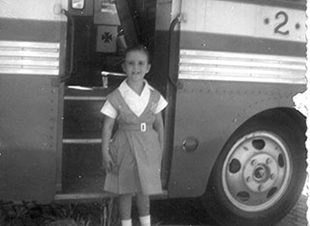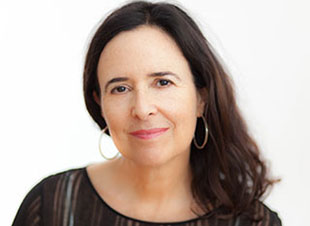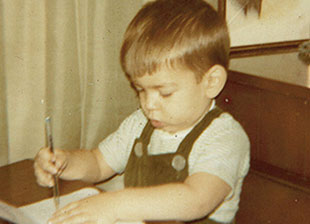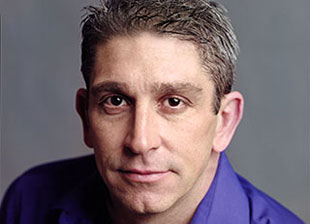About the Creators


Ruth Behar
Hardly breathing, I reach my house. And when I open the door, I hear many keys clanging, the keys my ancestors stubbornly took with them to their exile…
Ruth Behar was born in Havana, Cuba, and grew up in New York. She is the James W. Distinguished Professor of Anthropology at the University of Michigan. Her honors include a MacArthur “Genius” Award, a John Simon Guggenheim Fellowship, a Distinguished Alumna Award from Wesleyan University, an Excellence in Education Award from the University of Michigan, being named a Carnegie Corporation “Great Immigrant,” and serving as an elected member of the American Academy of Arts and Sciences. Known for her writing about the search for home in our global era, her books include The Presence of the Past in a Spanish Village; Translated Woman: Crossing the Border with Esperanza’s Story, a New York Times Notable Book; and The Vulnerable Observer: Anthropology That Breaks Your Heart. She is co-editor of Women Writing Culture, which has become a classic text on women’s literary work in anthropology.
Behar frequently visits and writes about her native Cuba and is the author of An Island Called Home: Returning to Jewish Cuba and Traveling Heavy: A Memoir in between Journeys. She is the editor of the pioneering anthology, Bridges to Cuba/Puentes a Cuba, and co-editor of The Portable Island: Cubans at Home in the World. She has written editorials about Cuba for the New York Times, the Los Angeles Times, the Washington Post, and the Huffington Post. Her documentary, Adio Kerida/Goodbye Dear Love: A Cuban Sephardic Journey, has been shown in film festivals all over the world.
Also a creative writer, her poetry and short fiction appear in Telling Stories: An Anthology for Writers; Burnt Sugar/Caña Quemada: Contemporary Cuban Poetry in English and Spanish; The Whole Island: Six Decades of Cuban Poetry, a Bilingual Anthology; and The Norton Anthology of Latino Literature. She collaborated often with the Cuban book artist Rolando Estévez on handmade books of her poetry, among them Broken Streets of My City/Las calles rotas de mi ciudad. A collection her poems can be found in the bilingual book, Everything I Kept/Todo lo que guardé. Behar has recently branched out as an author and now writes fiction for young people. She won the Pura Belpré Award for her novel, Lucky Broken Girl, and is also the author of the novel, Letters from Cuba, and the picture book, Tía Fortuna’s New Home. She and her son, Gabriel Frye-Behar, co-authored Pepita Meets Bebita, a picture book inspired by Gabriel becoming a dad and Ruth an abuelita.
Moving between English and Spanish, writing in both languages and aware of her Jewish roots, Behar explores the convergence of cultures in ways that open new avenues for self-expression, not just for herself, but for others who find themselves “in the between,” searching for meaning in exile and diaspora and the quest for home.
Selected by President Obama as the fifth inaugural poet in U.S. history, Richard Blanco was the first Latinx, immigrant, and gay person to serve in that role. In 2023, Blanco was awarded the National Humanities Medal by President Biden. He served as a Woodrow Wilson Visiting Fellow and has received numerous honorary doctorates. He has taught at Georgetown University, American University, Wesleyan University, and currently is an Associate Professor at Florida International University.
Born in Madrid to Cuban exile parents and raised in Miami in a working-class family, he has navigated cultural identity, sexuality, and sociopolitical matters in his five collections of poetry: How To Love a Country ; Looking for The Gulf Motel, winner of the Paterson Poetry Prize and the Thom Gunn Award; Directions to The Beach of the Dead, recipient of the Beyond Margins Award from the PEN American Center; and City of a Hundred Fires.
In addition, Blanco has authored two memoirs: For All of Us, One Today: An Inaugural Poet’s Journey; and The Prince of Los Cocuyos: A Miami Childhood, winner of a Lambda Literary Award and a Maine Literary Award. Exploring other genres, with Vanessa Garcia, Blanco co-wrote the play Sweet Goats & Blueberry Señoritas which premièred at Portland Stage, with a second production scheduled at Actors’ Playhouse in Miami. As a civically engaged author, Blanco has written several occasional poems for organizations and events, lending his art and voice to advocate for diversity, LGBTQ rights, immigration rights, and arts education.
Whether speaking as the Cuban Blanco or the American Richard, the homebody or the world traveler, the scared boy or the openly gay man, the engineer or the inaugural poet, Blanco’s invites readers and audiences to see themselves in his writings, which for him are like mirrors—each one of us gazing into our respective lives blurred together with his, connecting us all across social, political, and cultural gaps. For in the end, his work asks himself those universal questions we all ask ourselves on our own journeys: Where am I from? Where do I belong? Who am I in this world?

